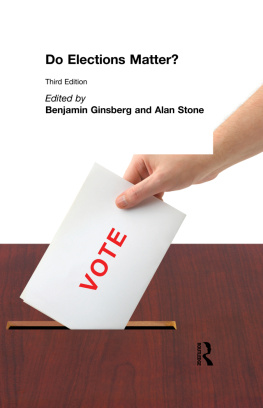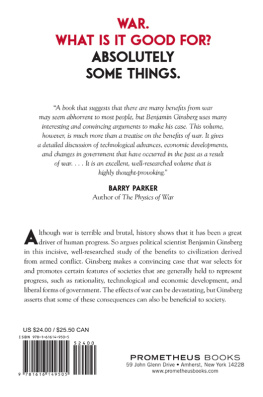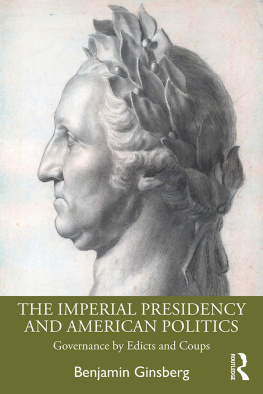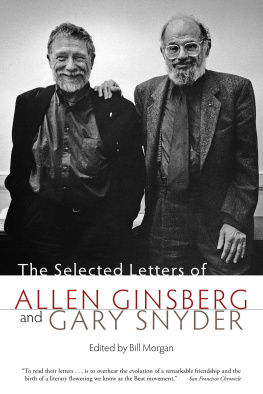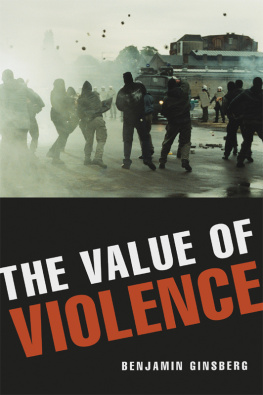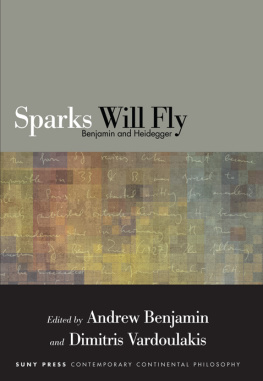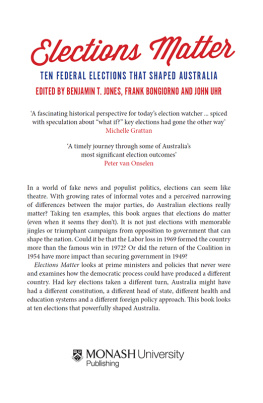Benjamin Ginsberg - Do Elections Matter?
Here you can read online Benjamin Ginsberg - Do Elections Matter? full text of the book (entire story) in english for free. Download pdf and epub, get meaning, cover and reviews about this ebook. year: 1987, publisher: Routledge, genre: Politics. Description of the work, (preface) as well as reviews are available. Best literature library LitArk.com created for fans of good reading and offers a wide selection of genres:
Romance novel
Science fiction
Adventure
Detective
Science
History
Home and family
Prose
Art
Politics
Computer
Non-fiction
Religion
Business
Children
Humor
Choose a favorite category and find really read worthwhile books. Enjoy immersion in the world of imagination, feel the emotions of the characters or learn something new for yourself, make an fascinating discovery.
- Book:Do Elections Matter?
- Author:
- Publisher:Routledge
- Genre:
- Year:1987
- Rating:3 / 5
- Favourites:Add to favourites
- Your mark:
- 60
- 1
- 2
- 3
- 4
- 5
Do Elections Matter?: summary, description and annotation
We offer to read an annotation, description, summary or preface (depends on what the author of the book "Do Elections Matter?" wrote himself). If you haven't found the necessary information about the book — write in the comments, we will try to find it.
Do Elections Matter? — read online for free the complete book (whole text) full work
Below is the text of the book, divided by pages. System saving the place of the last page read, allows you to conveniently read the book "Do Elections Matter?" online for free, without having to search again every time where you left off. Put a bookmark, and you can go to the page where you finished reading at any time.
Font size:
Interval:
Bookmark:

2 Park Square, Milton Park, Abingdon, Oxon OX14 4RN
711 Third Avenue, New York, NY 10017, USA
No responsibility is assumed by the publisher for any injury and/or damage to persons or property as a matter of products liability, negligence or otherwise, or from any use of operation of any methods, products, instructions or ideas contained in the material herein.
Do elections matter? / edited by Benjamin Ginsberg and Alan Stone.3rd ed.
p. cm.
Includes bibliographical references and index.
ISBN 1-56324-445-4 (alk. paper).ISBN 1-56324-446-2 (pbk.: alk. paper)
1. Elections.
2. Voting.
3. Political parties.
4. Public policy (Law)
I. Ginsberg, Benjamin.
II. Stone, Alan, 1941
III. Title.
JF1001.D6 1996
324.973dc20
95-26785
Do
CIP
ISBN 13: 9781563244452 (hbk)
| The 1994 National Elections: A Debacle for the Democrats |
| Benjamin Ginsberg |
| Chris Cookson, Ross Lence, and Alan Stone |
| The Decline and Ascent of Political Parties in Canada: The Collapse of the Conservatives and the Rise of Reform |
| Kenneth Woodside |
| Busted: Government and Elections in the Era of Deficit Politics |
| Daniel Wirls |
| Thomas Ferguson |
| Issues, Elections, and Political Change: The Case of Abortion |
| Timothy A. Byrnes |
| The Importance of Elections in a Strong Congressional Party Era: The Effect of Unified vs. Divided Government |
| Bruce I. Oppenheimer |
| Richard Joslyn |
| ? |
| Kathleen Knight and Carolyn V. Lewis |
| John Frendreis, Alan R. Gitelson, Gregory Flemming, and Anne Layzell |
| Fresh Troops and Hardened Veterans: Religious Activists and Party Realignment in the 19905 |
| James L. Guth, John C. Green, Corwin E. Smidt, and Lyman A. Kellstedt |
| Tables |
| Oppenheimer |
| Party Votes as a Percentage of All Roll Call Votes, 19711994 |
| Members Voting with Opposition Party More Often on Party Votes |
| Major New Laws Enacted in the 103rd Congress, 19931994 |
| Number of Appropriation Bills Enacted Within One Month of Fiscal Year Start by State of Party Control |
| Presidential Support Score of 218th House Member and 51st Senator |
| Joslyn |
| Knight and Lewis |
| Frendreis. Gitelson. Flemming. and Layzell |
| Differences in Mean Issue Positions Between Democratic and Republican Candidates in 1992 State Legislative 181Elections |
| Differences in Mean Issue Positions Between Democratic and Republican Opponents in State Legislative Races, by State |
| Differences in Mean Issue Positions Between Winning and Losing Candidates in State Legislative Elections |
| Guth. Green. Smidt. and Kellstedt |
| Changes in Religious Tradition, Religious Intensity, and Party Identification Among Religious Activists |
| Religious Variables and Change in Party Identification Among Religious Activists |
| Social Theology, Political Relevance, and Change in Party Identification Among Religious Activists |
| Political Agenda, Ideology, and Change in Party Identification Among Religious Activists |
| Political Mobilization and Change in Party Identification Among Religious Activists |
| Demographic Factors and Change in Party Identification Among Religious Activists |
| Figures |
| Ginsberg |
| Wirls |
| Joslyn |
| Knight and Lewis |
Font size:
Interval:
Bookmark:
Similar books «Do Elections Matter?»
Look at similar books to Do Elections Matter?. We have selected literature similar in name and meaning in the hope of providing readers with more options to find new, interesting, not yet read works.
Discussion, reviews of the book Do Elections Matter? and just readers' own opinions. Leave your comments, write what you think about the work, its meaning or the main characters. Specify what exactly you liked and what you didn't like, and why you think so.

